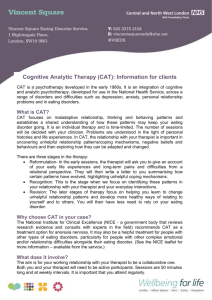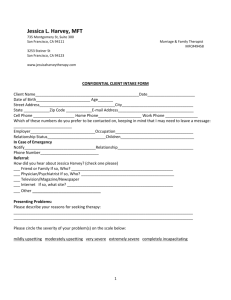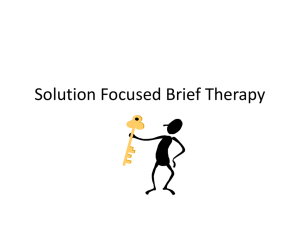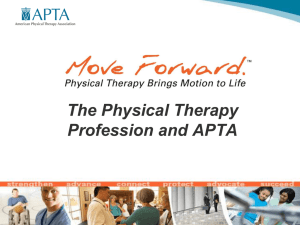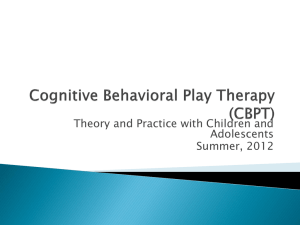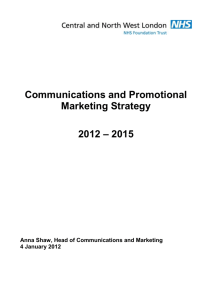Supportive clinical management
advertisement
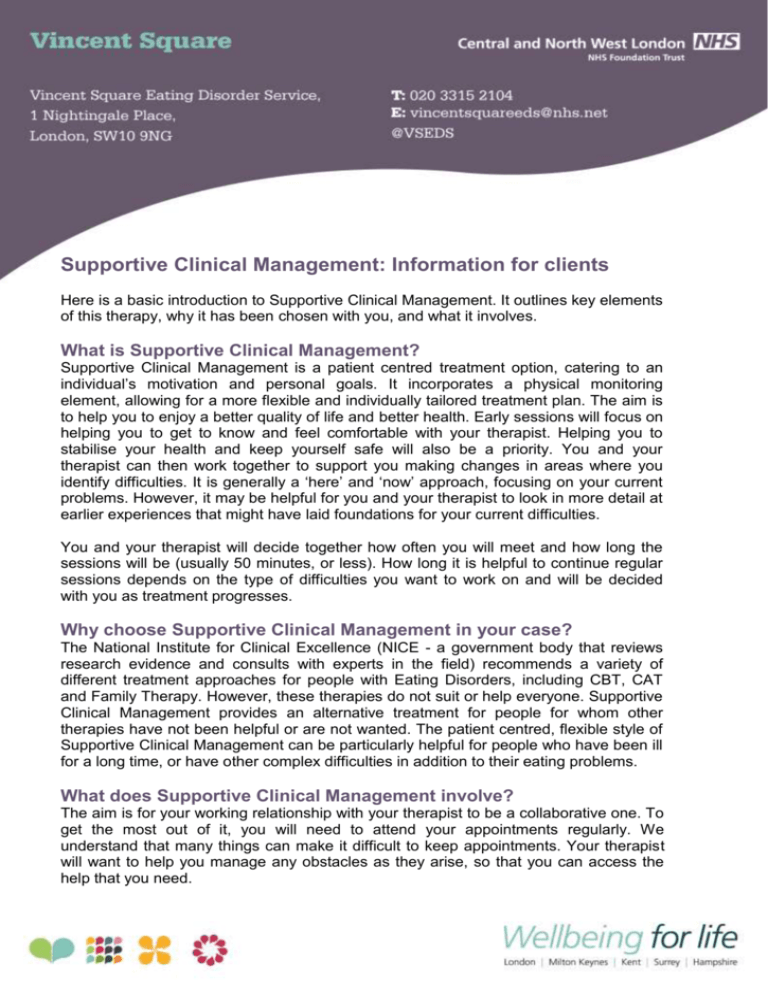
Supportive Clinical Management: Information for clients Here is a basic introduction to Supportive Clinical Management. It outlines key elements of this therapy, why it has been chosen with you, and what it involves. What is Supportive Clinical Management? Supportive Clinical Management is a patient centred treatment option, catering to an individual’s motivation and personal goals. It incorporates a physical monitoring element, allowing for a more flexible and individually tailored treatment plan. The aim is to help you to enjoy a better quality of life and better health. Early sessions will focus on helping you to get to know and feel comfortable with your therapist. Helping you to stabilise your health and keep yourself safe will also be a priority. You and your therapist can then work together to support you making changes in areas where you identify difficulties. It is generally a ‘here’ and ‘now’ approach, focusing on your current problems. However, it may be helpful for you and your therapist to look in more detail at earlier experiences that might have laid foundations for your current difficulties. You and your therapist will decide together how often you will meet and how long the sessions will be (usually 50 minutes, or less). How long it is helpful to continue regular sessions depends on the type of difficulties you want to work on and will be decided with you as treatment progresses. Why choose Supportive Clinical Management in your case? The National Institute for Clinical Excellence (NICE - a government body that reviews research evidence and consults with experts in the field) recommends a variety of different treatment approaches for people with Eating Disorders, including CBT, CAT and Family Therapy. However, these therapies do not suit or help everyone. Supportive Clinical Management provides an alternative treatment for people for whom other therapies have not been helpful or are not wanted. The patient centred, flexible style of Supportive Clinical Management can be particularly helpful for people who have been ill for a long time, or have other complex difficulties in addition to their eating problems. What does Supportive Clinical Management involve? The aim is for your working relationship with your therapist to be a collaborative one. To get the most out of it, you will need to attend your appointments regularly. We understand that many things can make it difficult to keep appointments. Your therapist will want to help you manage any obstacles as they arise, so that you can access the help that you need. What can I expect of my therapist? Your therapist works as part of a team, and will discuss your case with members of the team from time to time in a confidential and respectful manner. Your therapist will respect your position as a patient. This means that they will try to be punctual, not cancel at short notice, and give you as much information as possible. In addition, they will not meet with you outside agreed times or outside the clinic, and any physical contact will be limited to that which is courteous (such as a handshake). Your therapist will put your interests first. If you are uncertain or uncomfortable, it is important to discuss this with your therapist. If you are still experiencing difficulty, you are very welcome to approach Dr Frances Connan (Clinical Director). Comments, Complaints, Compliments We welcome your views on our service. Please contact the Patient Advice and Liaison Service (PALS) for confidential advice and information about CNWL services: • Phone: 020 3214 5773 • Email: pals.cnwl@nhs.net This document is also available in other languages, large print, Braille, and audio format upon request. Please email communications.cnwl@nhs.net Dokument ten jest na życzenie udostępniany także w innych wersjach językowych, w dużym druku, w alfabecie Braille'a lub w formacie audio. Mediante solicitação, este documento encontra-se também disponível noutras línguas, num formato de impressão maior, em Braille e em áudio. Dokumentigaan waxaa xitaa lagu heli karaa luqado kale, daabacad far waa-wayn, farta indhoolaha (Braille) iyo hab dhegaysi ah markii la soo codsado. Be belge istenirse, başka dillerde, iri harflerle, Braille ile (görme engelliler için) ve ses kasetinde de temin edilebilir. Central and North West London NHS Foundation Trust Stephenson House, 75 Hampstead Road, London NW1 2PL. www.cnwl.nhs.uk
